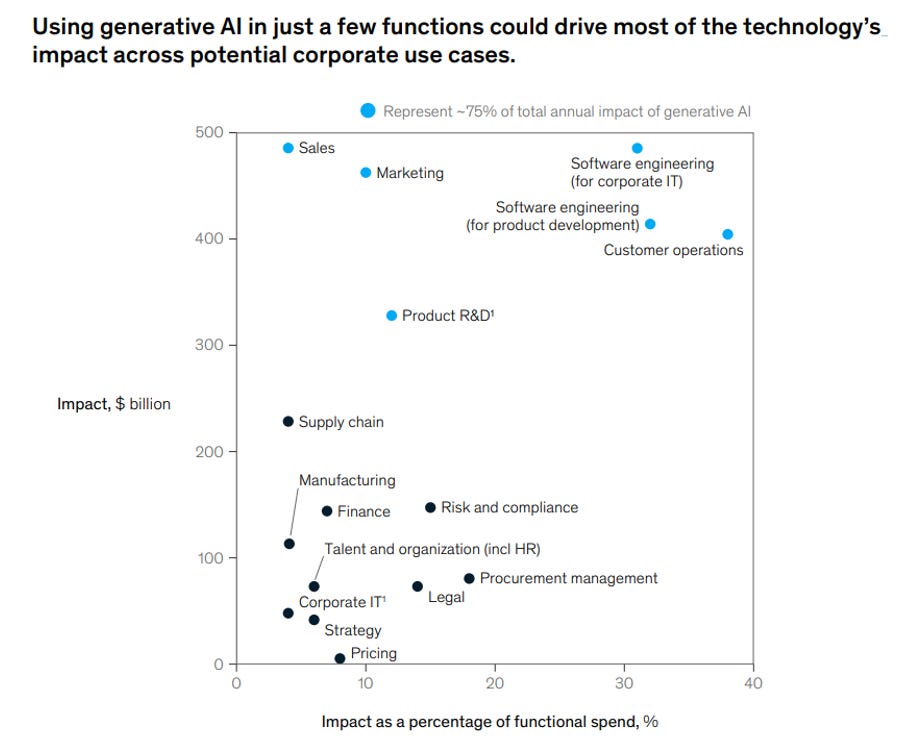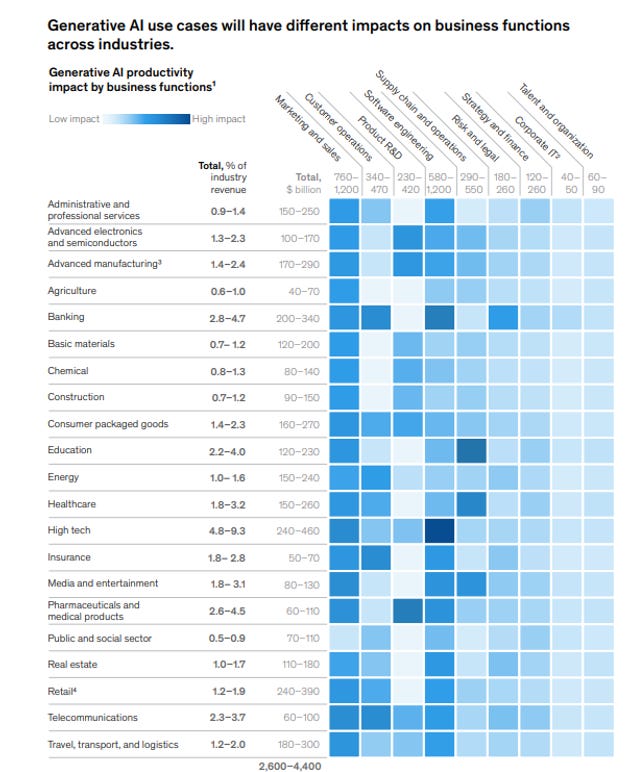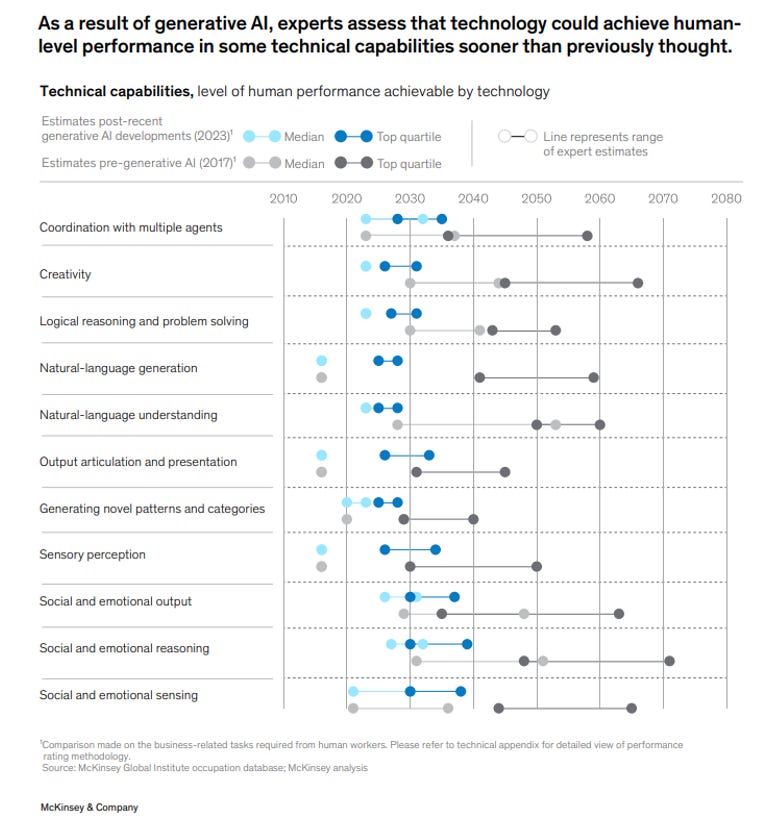Artificial intelligence (AI) can play a crucial role in helping business leaders make strategic, but also immediate, data-driven decisions, and therefore act effectively.
Studies show that adopting generative AI in marketing reveals promising productivity gains, with marketers estimating that generative AI can save them the equivalent of more than one month of work per year. Some estimates predict that AI has the potential to automate 40% of the average workday
McKinsey’s latest report on the potential economic impact of generative AI points to what could be the next frontier of productivity. The report studied 16 business functions, examining 63 use cases where the technology can address specific business challenges in a way that produces one or more measurable results.
Customer operations, marketing and sales, software engineering and research and development
Here are some of the key predictions on the impact of generative AI from the McKinsey report:
- McKinsey’s latest research estimates that generative AI could add the equivalent of $2.6 to $4.4 trillion per year in revenue in the 63 use cases analyzed. For comparison, France’s total GDP is $2.958 trillion in 2021. This would increase the impact of the entire AI market by 15-40%.
- About 75% of this value is in four areas: Customer Operations, Marketing & Sales, Software Engineering, and Research & Development.
- But generative AI will have a significant impact on all industries. Banking, high tech and life sciences are among the industries that could see the biggest impact.
- Generative AI has the potential to change the anatomy of work, increasing the capabilities of workers by automating some of their activities. Today’s generative AI has the potential to automate work activities that consume 60-70% of employee time today. The accelerating potential for technical automation is largely driven by generative AI’s ability to understand natural language, which is necessary for work activities that account for 25% of total work time.
- The pace of workforce transformation is likely to accelerate, given the increasing potential for automation. Half of today’s work activities could be automated between 2030 and 2060with a midpoint in 2045, about ten years earlier than in previous McKinsey estimates.
- Generative AI can dramatically increase labor productivity across the economy, but it will require investment to support workers as they change occupations or jobs. Generative AI could enable labor productivity growth of 0.1-0.6% per year through 2040, depending on the rate of technology adoption and redeployment of working time to others activities.
- The era of generative AI is just beginning. The enthusiasm for this technology is palpable and the first pilot projects are convincing. But it will take time for the benefits of technology to fully materialize, and leaders still face significant challenges. These include managing the inherent risks of generative AI, determining what new skills and capabilities the workforce will need, and rethinking business processes such as developing new skills.
The McKinsey report has another very important element: “Technology could drive value across an organization by revolutionizing internal knowledge management systems.”

Using generative AI in just a few functions could drive most of the technology’s impact in potential business use cases. 2023 McKinsey Report on Generative AI
The impact of generative AI on business functions varies, but the report gives very compelling specific examples. Generative AI could increase sales productivity by 3-5% of current global spend.

Impact of generative AI on productivity by business function. 2023 McKinsey Report on Generative AI
Over the years, machines have given human workers various “superpowers”
The McKinsey report concludes by predicting the impact of generative AI on the future of work, noting that over the years machines have given human workers various “superpowers”.

Technical capabilities, level of human performance that can be achieved by technology. 2023 McKinsey Report on Generative AI
For many industries, generative AI, trust, data security, and improving digital experiences are key priorities for improving the overall customer experience. To learn more about the potential impact of generative AI on the economy, you can read the McKinsey report here.
Source: “ZDNet.com”
